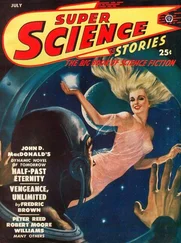“It is indeed regrettable that you plunged a knife into René. He is indeed dead. I will open the door now, and your gun will be in this pocket. Do not speak.”
Charlebois held the knife delicately and rubbed the thin metal handle against the side of his trousers, careful not to spot himself with the blood that colored the blade. He stepped closer to Dalquist and flicked a few drops of blood from the wet blade. They spattered on the dull gray fabric of Dalquist’s suit.
He stepped to the door, unlocked it and swung it open. Jerry Ellis walked hesitantly in, her eyes wide, her underlip caught behind her teeth. Charlebois took a quick look into the hall and shut the door again.
He bowed to Jerry and said, “Mademoiselle, this is most regrettable, but this man — who was here with you earlier tonight — appears to be quite mad. That knife on the floor. With it he...” Charlebois waved a nervous hand toward the body of René.
Dalquist knew he could quickly protest his innocence to Jerry, and Charlebois would not dare use the gun. He needed Dalquist, alive, on whom he could pin the suspicions of the police so as to provide him sufficient time to get back across the border into Mexico before Dalquist could make his credentials known. It was a clever and daring plan. But some perverse instinct in Dalquist made him keep silent. He stared woodenly at Jerry, saw her features pale, saw her take a step backward away from the silent body.
Charlebois said quickly, “Mademoiselle, I have a gun in my pocket and I shall watch this murderer. Will you please go downstairs and phone the police.”
She looked at Jan Dalquist, hurt and questioning in her eyes. He stared at her without expression. Charlebois opened the door and Dalquist heard the quick tapping of her feet as she went down the stairs.
Dalquist said, “You won’t get away with this, Jean Charlebois.” But even as he said it, he knew the scheme would work — that by the time he could divert the attention of the police away from himself, Charlebois would be out of reach. He felt ill as he thought of the additional weary months of search that would be necessary.
He said, “And even if this does work long enough for you to get away, Charlebois, I will soon be after you again.” It was not said with defiance. It was said with a tired resignation. It expressed the soul-sickness of him, the cumulative exhaustion of killing and seeing death, the internal, pervading nausea that had been with him for two and a half years.
Charlebois said, “You forget, monsieur. I know you now. I know your face. You will never kill me. Even if you find me, it is you who will die. In this game, once the hunter is known, the advantage is with the hunted. I will seek a place where you cannot approach me without my knowledge. And there I will kill you.”
There was a quiet confidence in the ring of his words. To Dalquist, it was like a sentence of death. Somehow, he knew that it would end in precisely that way. For he was too weary with the game to continue much longer. He would walk blindly into a death that would be but a continuation of his present, purposeless existence.
Charlebois chuckled. He said, “I did not believe that the young lady was in league with you. Had her reactions been different, I would have killed the both of you and escaped immediately. In a way you are lucky. But it will be more pleasant to deal with you at some future time in circumstances that are more to my liking.”
“You are an egocentric animal, Jean Charlebois.”
“Possibly, monsieur, but of an effectiveness truly surprising.”
Dalquist heard the heavy steps on the stairs and tensed himself to spring as Charlebois glanced toward the door. But the slim man looked back too quickly.
They walked in the door, with Jerry Ellis following them, two lean uniformed men. One crossed over and knelt by René’s body. He stood up and shrugged.
The other said, “While we wait for Homicide, suppose you give me a quick reading.” He stepped over to Charlebois and held out his hand. Charlebois laid the automatic carefully in the outstretched hand.
“Sir, the dead man is my employer and the manager of the Ancient Door, René Despard. That man in the chair came in here earlier in the evening, and we made arrangements for me to be his guide starting at eleven-thirty. He was with that young lady who called you. At eleven-thirty, René and I were in this room. That gentleman came in, quite drunk, and began to call us both foul names. René tried to quiet him. The gentleman pulled out that gun I just gave you and threatened us.
“I circled him and struck him behind the ear. You will find the mark. He fell and dropped the gun. René took out that knife you see on the floor. As I picked up the gun, the gentleman jumped up and rushed at René, striking him violently on the arm. René dropped the knife. The man picked it up and drove it into René Despard.
“The violence of his act seemed to sober him. I threatened him with the gun and he sat in that chair where he now is. You can see the marks of blood on his trousers. The woman came and knocked at the door. I admitted her and told her to call the police. Truly, it seems to me the act of a madman.” His voice broke. “René was — was my friend. A harmless man and a good man.”
The first policeman said, “Made him drop the knife, picked it up and killed him with it.” He glanced at Dalquist.
Dalquist said, “This is a fabric of lies. That man killed René. I saw him.”
Charlebois grunted contemptuously. “Kill a man who was my friend and my employer? Any other employee will testify as to our great friendship.”
The policeman turned to Dalquist and said, “Mister, you just keep your mouth shut. We’re damn tired of people getting crazy drunk in this town.”
Dalquist knew that it would be that way. Charlebois was too convincing, too sincere in his expressions of bewilderment and sorrow. He avoided the pitfalls of retelling his story, of showing too much emotion or giving too much detail.
Dalquist was surprised to see, out of the corner of his eye, that Jerry was moving closer to his chair. The room was very silent. One policeman leaned against the doorframe and picked his teeth with a fragment of matchstick. Charlebois stared numbly at the floor. Dalquist pleaded with the Fates for a man of perception among those they were awaiting.
They all started when Jerry said loudly, “You say that the dead man dropped the knife and Mr. Dalquist picked it up off the floor?”
The policeman by the door said, “Stay out of this, lady. We’ll ask any questions that need to be asked.”
She fumbled with her purse, and her very thin cigarette case dropped to the floor. It landed by Dalquist’s feet. Instinctively he bent over for it.
As he fumbled at it, he heard Jerry say loudly, “You’re fools to listen to that waiter! Look at this man! Do you believe he could pick a knife that thin off the floor when he can’t even pick up my cigarette case, which is twice as thick as the knife? Look at his hands!”
It was true. With the numb ends of his manufactured fingers, with the absence of fingernails, Jan Dalquist could only fumble at the case. He couldn’t get a grasp on it. The policeman by the door stepped over. Dalquist straightened up and held out his hands. The policeman’s mouth twisted as he looked at them.
There was a flash of movement and the other policeman yelled, “Hey! Stop, you!” Charlebois had melted out of the room. Dalquist heard his feet pounding along the corridor. It was obvious that it had been Charlebois’s only possible move. Once Jerry had cast sufficient doubt on Charlebois’s story so as to make it essential to hold him, he couldn’t risk staying.
Dalquist said, “Stay in this room!” as he ran out into the corridor. He realized that Charlebois hadn’t wanted to take the risk of running into the men who would soon be coming up the stairs. He would duck in somewhere.
Читать дальше
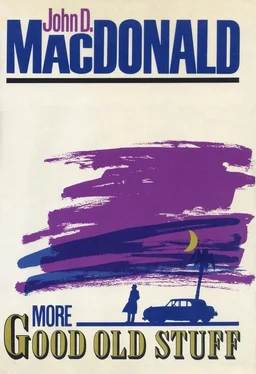
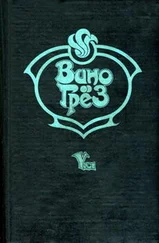
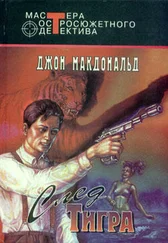
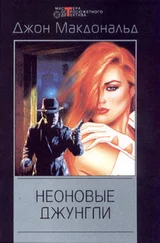

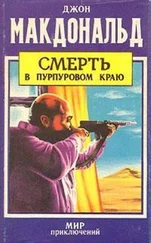



![Джон Макдональд - Wine of the Dreamers [= Planet of the Dreamers]](/books/430039/dzhon-makdonald-wine-of-the-dreamers-planet-of-thumb.webp)

